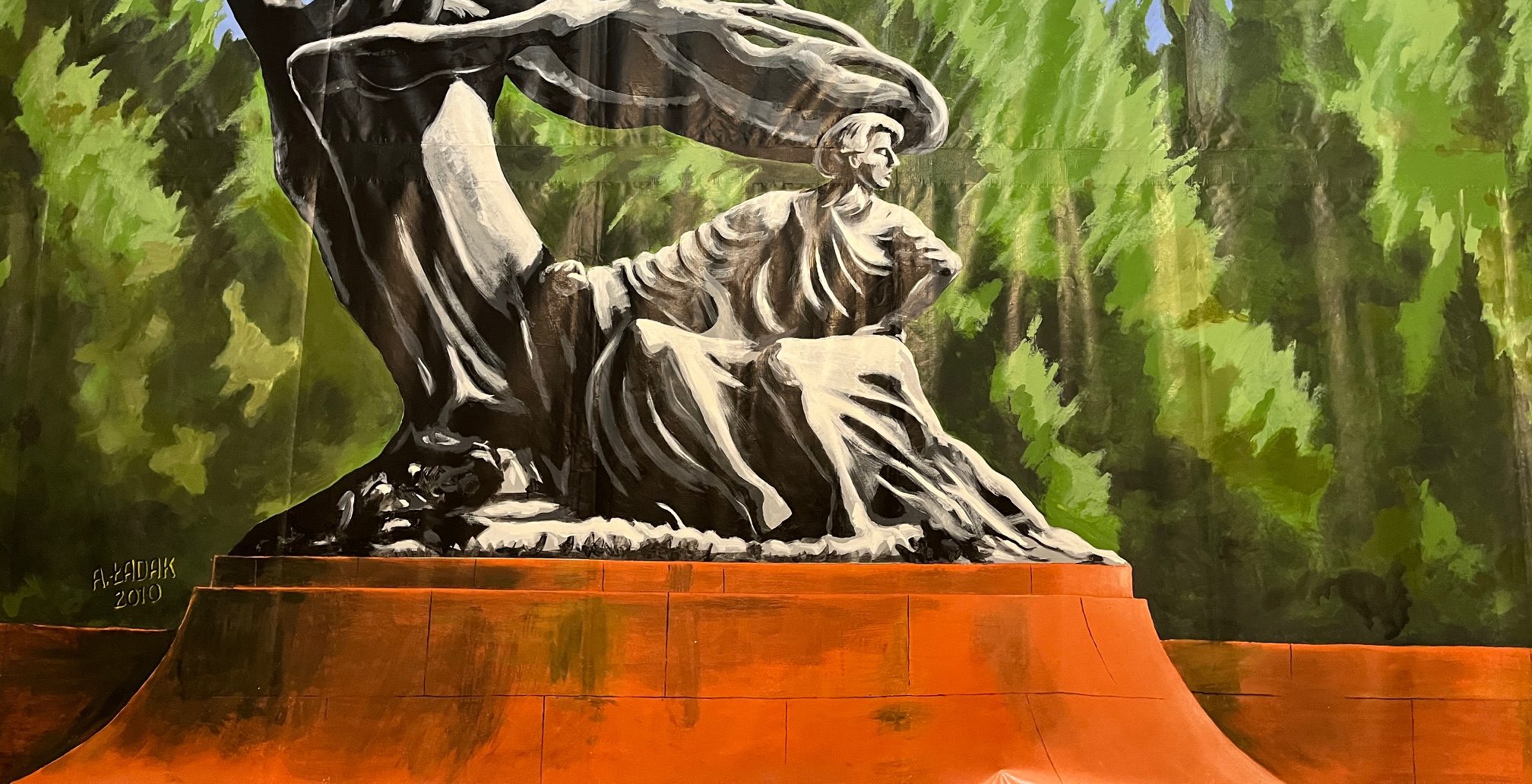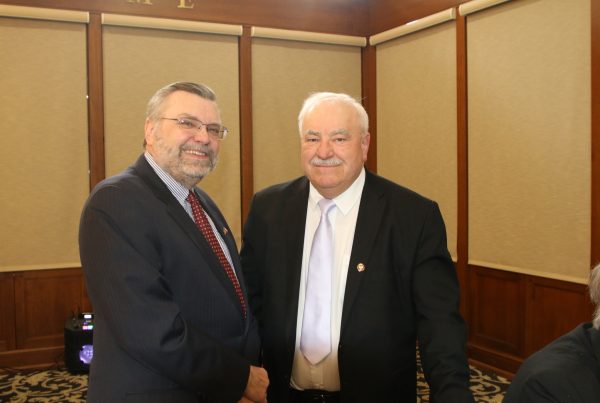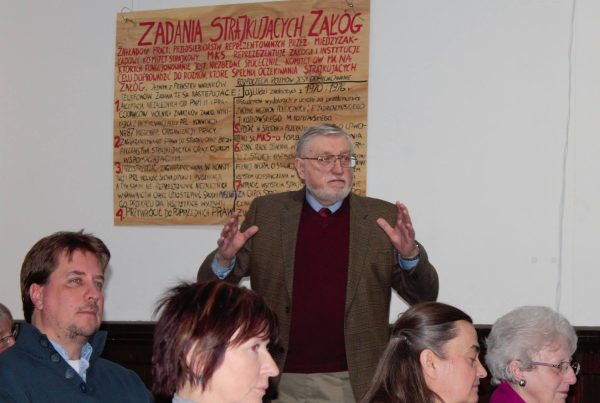American Polish Cultural Society, Chopiniana Banquet, Troy, September 28, 2025
Witam Pana, Panie Prezesie,
Witam Pana Konsulu,
Witam wielebnych księży i siostry zakonne,
Witam Szanownych Państwa.
Dziękuję za przywilej wypowiedzenia kilku słów z okazji dzisiejszej uroczystości.
Mr. President, Officers, and Directors of the American Polish Cultural Society,
Reverend Fathers and Sisters,
Ladies and Gentlemen.
Thank you for the opportunity to say a few words on this occasion, on which we commemorate the 40th anniversary of the founding of the American Polish Cultural Center, pay tribute to Ms. Jacqueline Kolowski and celebrate the Chopiniana.
Forty years ago, in 1985, when Poland was still under Communist control, a group of patriotic Polish-Americans founded the APCS, in order to safeguard and ensure that Polish culture would endure in Michigan. These founders and their successors chose the name of this organization purposefully in calling it the American Polish Cultural Society.
The name itself is interesting and worth deconstructing in order to understand its mission.
Underpinning the organization’s name are the words “Cultural Society”. What is “culture”? Culture is a group’s shared set of values, beliefs, customs and traditions, language, food, art, music and even religion. And a “Society” is a group of people that share that common culture.
But it is worth asking what is the specific “Culture” that is being referred to in the name of APCS? There were two possibilities: one is a “Polish American culture” and the other is an “American Polish culture”. There is a difference.
Grammatically, a “Polish American” culture is the value system and traditions of people of Polish descent residing in the US. This could include certain traditions and values observed by Polish-Americans, but not necessarily the same ones that are part of the Polish culture coming from Poland. For example, one could say that things like polka dancing, or an obsession with kielbasa and pierogi, or meeting at a corner bar could be part of the Polish-American culture, but these things are not part of Polish culture.
Now, there’s nothing wrong with polkas, kielbasa or bars, and I certainly enjoy them all, but the founders of this organization chose to name it the American Polish Cultural Society. Again, grammatically, in this name the principal object and emphasis is on the Polish aspect, the culture of Poland. Thus, the primary focus of APCS is on the culture which we derive from our Polish heritage, not necessarily our Polish-American heritage. As the original Articles of Incorporation of the organization, filed on December 23, 1985, stated, the first and primary purpose of the organization is: “To encourage the participation of Americans of Polish descent in the pursuit of their Polish heritage and culture.:
So, throughout the years, especially since APCS purchased this building in 1989, the APCS has been a key meeting place and host of many events commemorating our Polish culture and heritage. For a very nice history of the APCS, I would encourage you to visit the website of the Tygodnik Polski, which describes the many events and celebrations held in this beautiful hall.
Today, I would just like to focus on one of these events: the annual Chopiniana, a celebration of the music and genius of one of Poland’s most cherished heroes: Fryderyk Chopin. As we all know, this event was Jackie Kolowski’s passion. For the past 12 years, as the Chair of the Chopiniana, she was devoted to promoting this event. And it was always a great success. We thank Ms. Kolowski for all she has done for the APCS and Polonia, and pray for her soul.
Wieczny odpoczynek racz jej dać, Panie, a światłość wiekuista niechaj jej świeci. Niech odpoczywa w pokoju wiecznym. Amen.
From an artistic perspective, Chopin is admired by so many throughout the world simply because his compositions are so beautiful. One of his closest friends, the Hungarian composer Franz Liszt, wrote that:
“Chopin’s works are compositions of a poet; they are not merely music, but poetry translated into sound.”
For Jackie, as for all of us, there is an added bonus in celebrating Chopin – his deep Polish identity. His compositions have been described as music that “vibrates with the soul of Poland.” As Franz Liszt also said of Chopin:
“He was a Pole to the core, and his spirit was steeped in the poetry of his country.”
Sometimes we hear the uninformed say, hold on; while Chopin’s mother was Polish, his father was French. So that makes Chopin only half Polish. But that misses the point and background of Chopin’s life story. It may be true that his father, Nicolas Chopin, was born in France, but Nicolas Chopin left France and went to Poland, together with his Polish tutor, in 1787, when he was 16 years old, never to return to France. And when in Poland, Nicolas Chopin changed his first name to Mikołaj. Even more importantly, when Russia invaded Poland to quell a national rebellion led by Tadeusz Kościuszko, Mikołaj joined the Polish militia in Warsaw, was placed in charge of a detachment of Polish soldiers, and fought in the Polish insurrection.
Several years later, when he was 35 years old, Mikołaj met Justyna Krzyżanowska, who was 24 at the time, and they married within a year. A couple years later, Fryderyk was born..
Undoubtedly, Chopin was certainly raised in a Polish household his Polish background had a profound and unique influence on his musical compositions. He incorporated into his most of his music the characteristics of Polish dances, especially the Mazurka, Polonaise, Krakowiak and Oberek. His songs are all set to Polish texts and several have a distinctively patriotic note, such as the Revolutionary Etude and his Scherzo in B Minor.
In November, 1930, when he was 20 years old, Chopin left Poland for a planned brief trip to Vienna. But just a few weeks after he left, the November Uprising of 1930 erupted against Russian rule in Warsaw. So Chopin did not return to Poland, but made his way to Paris, where he joined other Polish exiles and patriots. On his way to Paris, in Stuttgart, he had learned of the crushing of the November Uprising and wrote in his diary:
The suburbs of Warsaw are destroyed, burned. Jaś and Wiluś are probably dead in the trenches. … That good man Sowiński in the hands of those Russian brutes! … Moscow rules the world! O God, do You exist? You’re there, and You don’t avenge? How many more Russian crimes will you permit?
I recently learned that one of Chopin’s compositions, the Opus 38 Ballade, is the subject of an interesting book by Jonathan Bellman, a music historian. The author describes this piece as a tale of the martyrdom of the Polish nation, in which Chopin wanted to transmit the story of Poland’s tragic fate through his music. In the first part of this Ballade, there is a serene, sotto voce melody in F major, representing paradise – the time that Chopin lived in Poland before the November Uprising of 1830. This is then followed by a dramatic change in the second theme and a change to the key of A minor, like a sudden, violent battle, representing the nation’s struggle for freedom in the November Uprising. Finally, the third theme in the piece is a recurring pastoral rhythm with shades of the first theme, but it remains in the key of A minor, rather than returning to F major, representing the unfulfilled dreams, destroyed by the Russian crushing of the November Uprising in 1830, and the agonizing memory of what could have been, but what is still not realized.
As you can probably tell, I very much enjoy reading about Chopin and his music. For those of you who might be interested, there is an excellent biography of Chopin written in 2018 by the musical historian, Alan Walker, called Fryderyk Chopin, A Life and Times.
Let me conclude by saying a few words about Chopin’s heart. I’m sure you have heard the story. Chopin died in Paris in 1849, when he was only 39 years old. He did not leave a will, but in his last days, while he was near death, he instructed his caretakers: “Remove my heart after I die and take it to Poland.” So after his death, they embalmed Chopin’s heart in a jar of cognac. But given the Russian occupation of that part of Poland, they were unable to deliver the heart to Warsaw, because the Russians viewed Chopin as a Polish patriot. A year later, Chopin’s sister, Ludwika Jędrzejewicz, managed to smuggle the heart back to Warsaw. Eventually, the heart was interred in a pillar of the Holy Cross Church (Kościół św. Krzyża) on Krakowskie Przedmieście in Warsaw. You can visit the site even today, which I strongly recommend. The plaque at the church simply reads:
“Tu spoczywa serce Fryderyka Chopina” (Here rests the heart of Frédéric Chopin)
There’s one interesting and ironic twist to the story of Chopin’s heart. As you know, beginning in August 1944, for 63 days, the Polish Home Army (Armia Krajowa), led the Warsaw Uprising, in an attempt to liberate Warsaw from the German army. After the Uprising failed to drive out the Germans, the Germans took revenge on the Poles, killing 200,000 Poles in Warsaw and destroying the city block by block. All this while the Soviet army was encamped on the other side of the Wisła river, just watching the destruction happen. The Holy Cross Church was also bombed and destroyed by the Germans during this time.
You may wonder, then, why was it that Chopin’s heart wasn’t also blown up during this retribution? It turns out that, just before the Holy Cross Church was to be destroyed, General Erich von dem Bach-Zelewski had Chopin’s heart removed from the Church for safekeeping. This General, who was a devout Nazi and SS officer appointed by Heinrich Himmler himself as the commander of the German forces in Warsaw during the uprising, turned out to be a music lover and admirer of Chopin’s music. Ironically, it was this same General who supervised the killing of the 200,000 Poles during the Warsaw Uprising and the destruction of the city, who saw to it that Chopin’s heart was preserved. Chopin’s heart was then returned to the Church right after the War, in 1945.
The story of the journey of Chopin’s heart is relevant because it is a useful metaphor on a couple levels. It illustrates that, although Chopin died in exile, his soul—and his music—never left Poland. It also illustrates that, throughout Poland’s history, whether or not they realize it, even the worst enemies and oppressors of Poland can never extinguish the Polish spirit and nation, as symbolized by Chopin’s heart.
And that’s why we are gathered here today – to celebrate the American Polish Cultural Society in keeping our beautiful Polish culture alive and in celebrating one of Poland’s greatest sons – Fryderyk Chopin.
Thank you, officers, directors and staff of the APCS, for all you do in fulfilling the mission of APCS. And thank you all for coming today to be part of that mission in celebrating, remembering and promoting Polish culture.
Bóg Zapłać!









